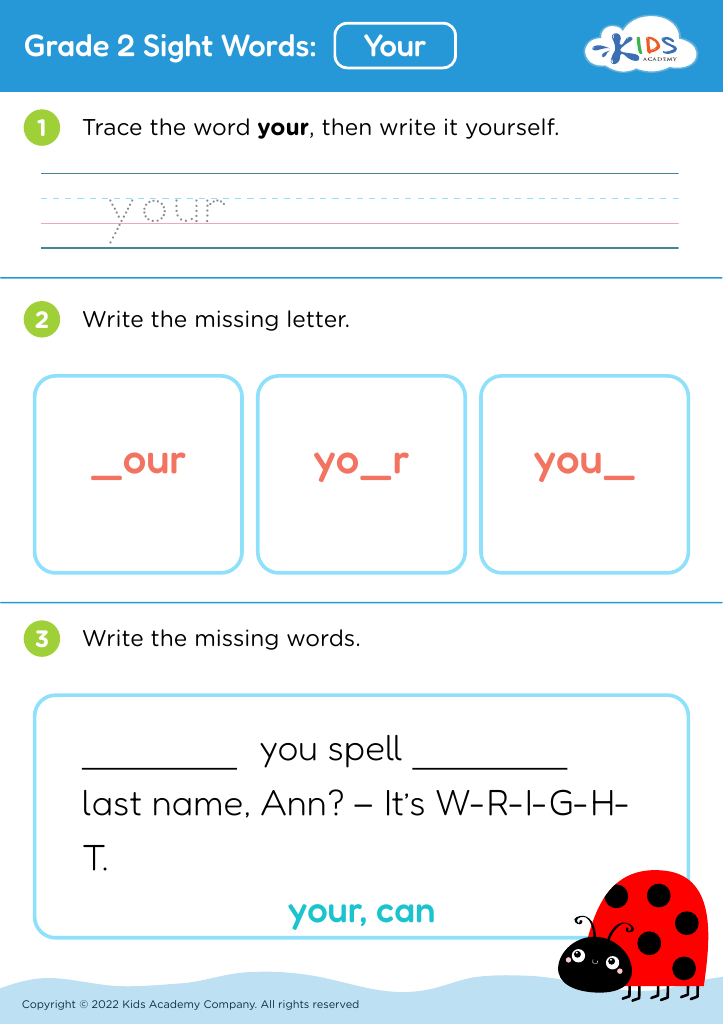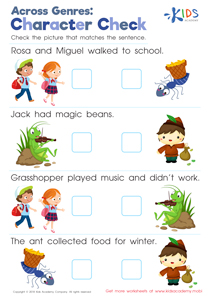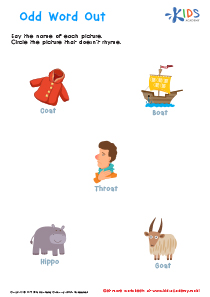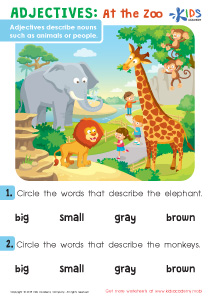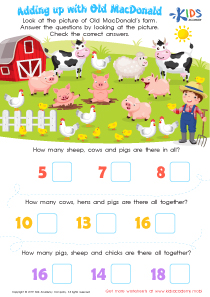Improve counting skills Grade 2 Reading Worksheets
3 filtered results
Difficulty Level
Grade
Age
-
From - To
Subject
Activity
Standards
Favorites
With answer key
Interactive
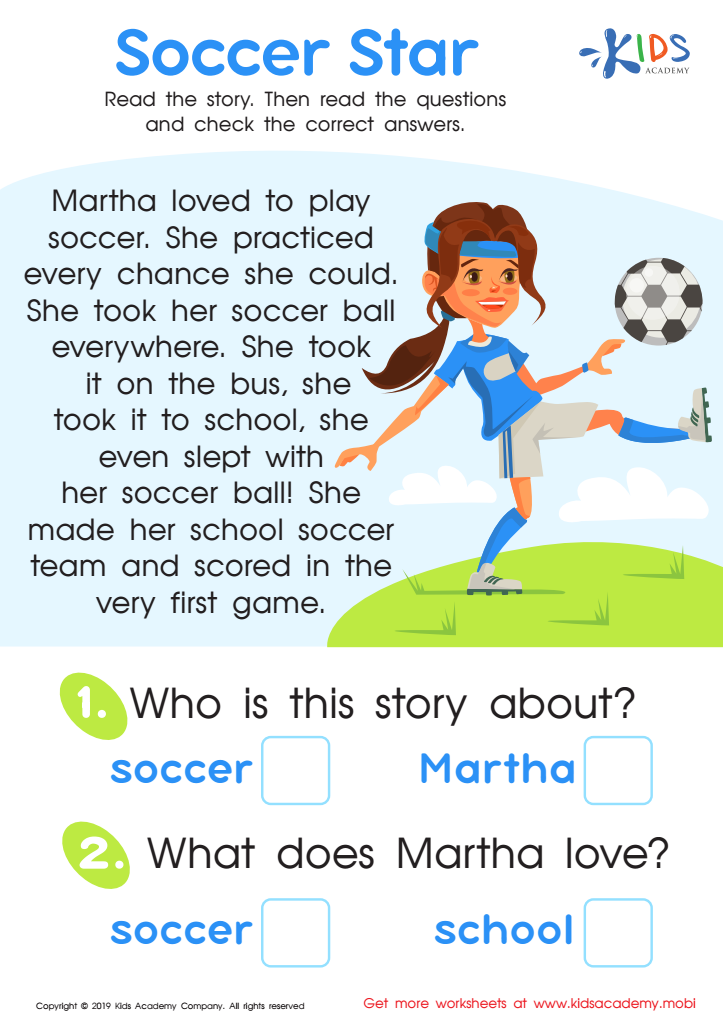

Soccer Star Worksheet
Do your kids play sports? Ask them what their favourite activities are and what they like most about them. Look at the picture in the worksheet with your kids. Can they tell you what sport the girl is playing? Read the story and help them answer the two questions at the bottom.
Soccer Star Worksheet
Worksheet
 Assign to the classroom
Assign to the classroom
